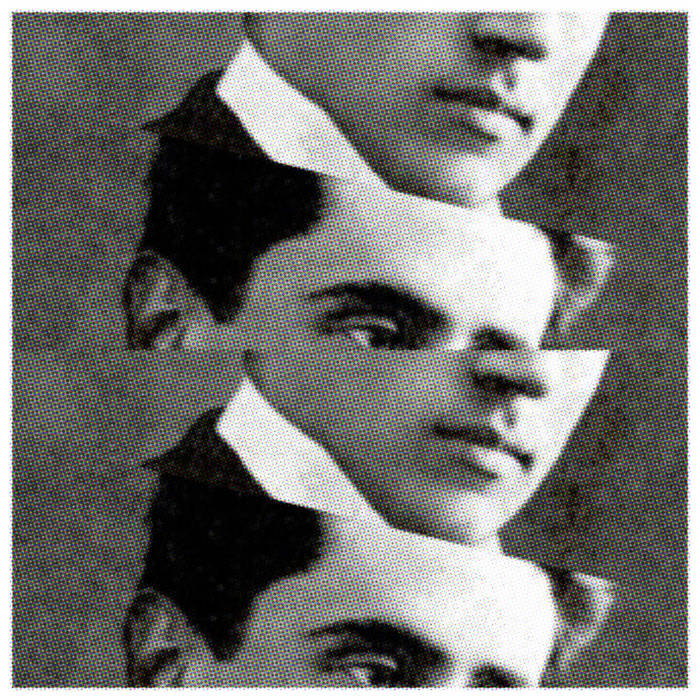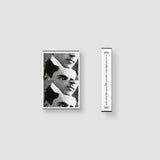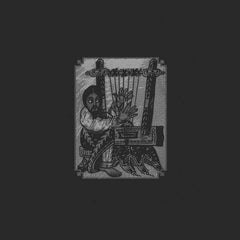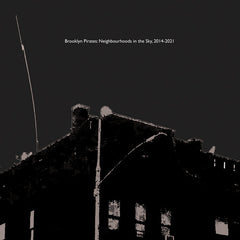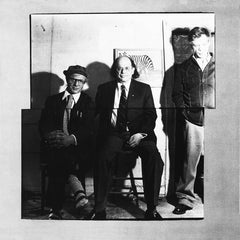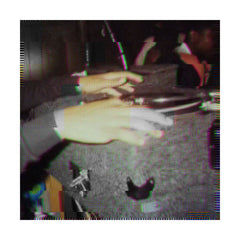Various Artists (Death Is Not The End / Bodega Pop) // Let Me Perish Without Return: Lament and Longing from the Fading Russian Empire, 1889-1917 TAPE
- Availability:
イギリス・ロンドンの発掘専門レーベルDeath Is Not The Endが、2025年4月にリリースした、1889-1917年ロシア民謡にフォーカスしたコンピレーションカセットです。
キュレーターはNYのラジオ番組/ハードディガーBodega Popが担当しています。
※デジタル音源を無料でお送りいたしますのでお気軽にご連絡くださいませ
以下、Bodega Popによる解説です。
"前世紀の変わり目、ロシア帝国は帝国の過去の重みと激変する未来への期待との狭間で岐路に立っていた。文化が大きく変貌し、動揺していた時期に録音されたこの音楽は、歴史におけるその儚い瞬間を垣間見せてくれる。ムジチョールの定番であった遊び心に満ちた風刺的なメロディーから、シベリアの流刑地に追放された人々の絶望を反映した悲痛なバラードまで、これらの曲は避難所であると同時に、体制下で多くの人々が経験した深い苦しみを映し出すものであった。娯楽というよりも、居間や居酒屋、街角や牢獄で歌われる、当時のロシア文化に不可欠なものだった。
私はこの音楽を、クイーンズ区のフォレスト・ヒルズやブルックリン区のブライトン・ビーチ、グレイブゼンド界隈にあるいくつかのギフトショップやメディアショップで見つけた。これらの地域や他のいくつかの地域には、現在ニューヨークには50万人以上のロシア系住民が住んでおり、その多くは難民である。私がニューヨークの無数の移民経営の店で音楽を集めていた10代の頃、なぜこの音楽なのか、なぜここなのか、なぜ今なのかといつも考えていた。
2000年代から2010年代にかけて、移民たちがニューヨークの棚に並べていたCDは、彼らの母国で手に入るもののごく一部だった。20世紀初頭の録音のコンピレーションをコンスタントに扱っていたのは、ロシア人は少数派で、中国、エジプト、ギリシャ、トルコの店主だけが、この時期の音楽史に特に熱心だったと、私の頭の中で記憶している。
このような古い音楽の魅力は何だったのだろうか?ロシア系ニューヨーカー第一世代は、自分たちの疎外感や不安感の反映をこの音楽に感じたのかもしれない。これらの歌に表現された深い悲しみや憧れは、彼ら自身の喪失感と共鳴し、同時に感情を共有するという形で慰めを与えたのかもしれない。おそらくそれは、苦難と変化の時代を生き抜いてきた年長者や先祖に寄り添ってきた文化的な記憶を生かすための方法だったのだろう。
現代の我々にとって、このような古い音楽の魅力とは何だろうか?"
レーベルその他作品はこちら /// Click here to see more Death Is Not The End releases available at Tobira.
--------------------------------------
Cassette in norelco case.
Tracklist:
1. S. Sadovnikov - Let Me Perish Without Return 02:34
2. Bogemski & Mironova - In the Harem 02:17
3. Y. Morfessi - You Ask for Songs 02:18
4. V. Kriger - Conversation Between the Audience and the Gramophone 03:17
5. N. Plevitskaya - The Horse Drags Along Quietly 02:35
6. Unknown Artists - Unknown Song 03:00
7. D. Ershov - Tell Me, Comrade, How Did You End up in the Mine? 02:54
8. Borin & Dmitrievsky - No, No, I Don’t Want 03:02
9. Bragin - Do You Remember, Comrade Constant? 02:42
10. N. Tamara - Swan Song 02:29
11. Mikhailova - In the Midnight Silence 02:42
12. L. Sibiryakov - Star, Forgive Me, It’s Time for Me to Sleep 03:06
13. M. Komarova - Have Pity 02:35
14. M. Vavich - Have Pity 02:30
15. Orlov & Romanchenko - Nastenka 02:47
16. N. Shevelev - The Song of a Convict 03:04
17. Unknown Artists - Unknown Song 02:51
18. N. Dulkevich - The Last Five Roubles 02:21
19. A. Zharkovsky - Our Tormented, Tortured Brother Craftsman 03:19
20. F. Shalyapin - The Sun Rises and Sets 03:21
Death Is Not The End:
"Our next release with Gary Sullivan's Bodega Pop project - rooted in a passion for digging for music in bodegas and cell-phone stores across NYC's boroughs. This edition focuses in on early recordings found in Russian neighborhoods in Brooklyn & Queens."
Text by Gary Sullivan (Bodega Pop) :
"At the turn of the last century, the Russian Empire stood at a crossroads, caught between the weight of its imperial past and the promise of a radically altered future. Recorded during a period of profound cultural transformation and unrest, the music collected here offers a haunting glimpse into that fragile moment in history. From playful and satirical melodies that were musichall staples to heartbreaking ballads reflecting the despair of those exiled to Siberian penal colonies, these songs provided both refuge and a reflection of the deep suffering experienced by many living under the regime. More than entertainment, they formed essential strands in the Russian cultural fabric of the time—songs sung in drawing rooms and taverns and on street corners and prison grounds.
I found this music in several gift and media stores in Forest Hills, Queens, and the Brighton Beach and Gravesend neighborhoods of Brooklyn. These and a few other communities are home to more than half a million people of Russian background currently living in New York City, many of them refugees. Back in the aughts and teens, when I was collecting music from New York’s innumerable immigrant-run stores, I would always wonder why this music, why here, and why now.
The CDs immigrants stocked on their New York shelves in the 2000s and 2010s was a tiny fraction of what was available in their home countries. The Russians were in the minority of those who consistently carried compilations of early 20th century recordings—the Chinese, Egyptian, Greek, and Turkish shopkeepers were the only others I remember off the top of my head as being particularly dedicated to this period of their musical history.
What was the appeal of such old music? First-generation Russian New Yorkers might have experienced in it a reflection of their own feelings of displacement and uncertainty. The deep sorrow and yearning expressed in these songs may have resonated with their own senses of loss while offering comfort in the form of shared emotional experience. Perhaps it was a way to keep some cultural memory alive in something they knew had once accompanied their elders and ancestors through times of hardship and change.
What is the appeal of such old music for us, today?"
Artist : Various Artists
Label : Death Is Not The End x Bodega Pop
cat no : DEATH097
イギリス・ロンドンの発掘専門レーベルDeath Is Not The Endが、2025年4月にリリースした、1889-1917年ロシア民謡にフォーカスしたコンピレーションカセットです。
キュレーターはNYのラジオ番組/ハードディガーBodega Popが担当しています。
※デジタル音源を無料でお送りいたしますのでお気軽にご連絡くださいませ
以下、Bodega Popによる解説です。
"前世紀の変わり目、ロシア帝国は帝国の過去の重みと激変する未来への期待との狭間で岐路に立っていた。文化が大きく変貌し、動揺していた時期に録音されたこの音楽は、歴史におけるその儚い瞬間を垣間見せてくれる。ムジチョールの定番であった遊び心に満ちた風刺的なメロディーから、シベリアの流刑地に追放された人々の絶望を反映した悲痛なバラードまで、これらの曲は避難所であると同時に、体制下で多くの人々が経験した深い苦しみを映し出すものであった。娯楽というよりも、居間や居酒屋、街角や牢獄で歌われる、当時のロシア文化に不可欠なものだった。
私はこの音楽を、クイーンズ区のフォレスト・ヒルズやブルックリン区のブライトン・ビーチ、グレイブゼンド界隈にあるいくつかのギフトショップやメディアショップで見つけた。これらの地域や他のいくつかの地域には、現在ニューヨークには50万人以上のロシア系住民が住んでおり、その多くは難民である。私がニューヨークの無数の移民経営の店で音楽を集めていた10代の頃、なぜこの音楽なのか、なぜここなのか、なぜ今なのかといつも考えていた。
2000年代から2010年代にかけて、移民たちがニューヨークの棚に並べていたCDは、彼らの母国で手に入るもののごく一部だった。20世紀初頭の録音のコンピレーションをコンスタントに扱っていたのは、ロシア人は少数派で、中国、エジプト、ギリシャ、トルコの店主だけが、この時期の音楽史に特に熱心だったと、私の頭の中で記憶している。
このような古い音楽の魅力は何だったのだろうか?ロシア系ニューヨーカー第一世代は、自分たちの疎外感や不安感の反映をこの音楽に感じたのかもしれない。これらの歌に表現された深い悲しみや憧れは、彼ら自身の喪失感と共鳴し、同時に感情を共有するという形で慰めを与えたのかもしれない。おそらくそれは、苦難と変化の時代を生き抜いてきた年長者や先祖に寄り添ってきた文化的な記憶を生かすための方法だったのだろう。
現代の我々にとって、このような古い音楽の魅力とは何だろうか?"
レーベルその他作品はこちら /// Click here to see more Death Is Not The End releases available at Tobira.
--------------------------------------
Cassette in norelco case.
Tracklist:
1. S. Sadovnikov - Let Me Perish Without Return 02:34
2. Bogemski & Mironova - In the Harem 02:17
3. Y. Morfessi - You Ask for Songs 02:18
4. V. Kriger - Conversation Between the Audience and the Gramophone 03:17
5. N. Plevitskaya - The Horse Drags Along Quietly 02:35
6. Unknown Artists - Unknown Song 03:00
7. D. Ershov - Tell Me, Comrade, How Did You End up in the Mine? 02:54
8. Borin & Dmitrievsky - No, No, I Don’t Want 03:02
9. Bragin - Do You Remember, Comrade Constant? 02:42
10. N. Tamara - Swan Song 02:29
11. Mikhailova - In the Midnight Silence 02:42
12. L. Sibiryakov - Star, Forgive Me, It’s Time for Me to Sleep 03:06
13. M. Komarova - Have Pity 02:35
14. M. Vavich - Have Pity 02:30
15. Orlov & Romanchenko - Nastenka 02:47
16. N. Shevelev - The Song of a Convict 03:04
17. Unknown Artists - Unknown Song 02:51
18. N. Dulkevich - The Last Five Roubles 02:21
19. A. Zharkovsky - Our Tormented, Tortured Brother Craftsman 03:19
20. F. Shalyapin - The Sun Rises and Sets 03:21
Death Is Not The End:
"Our next release with Gary Sullivan's Bodega Pop project - rooted in a passion for digging for music in bodegas and cell-phone stores across NYC's boroughs. This edition focuses in on early recordings found in Russian neighborhoods in Brooklyn & Queens."
Text by Gary Sullivan (Bodega Pop) :
"At the turn of the last century, the Russian Empire stood at a crossroads, caught between the weight of its imperial past and the promise of a radically altered future. Recorded during a period of profound cultural transformation and unrest, the music collected here offers a haunting glimpse into that fragile moment in history. From playful and satirical melodies that were musichall staples to heartbreaking ballads reflecting the despair of those exiled to Siberian penal colonies, these songs provided both refuge and a reflection of the deep suffering experienced by many living under the regime. More than entertainment, they formed essential strands in the Russian cultural fabric of the time—songs sung in drawing rooms and taverns and on street corners and prison grounds.
I found this music in several gift and media stores in Forest Hills, Queens, and the Brighton Beach and Gravesend neighborhoods of Brooklyn. These and a few other communities are home to more than half a million people of Russian background currently living in New York City, many of them refugees. Back in the aughts and teens, when I was collecting music from New York’s innumerable immigrant-run stores, I would always wonder why this music, why here, and why now.
The CDs immigrants stocked on their New York shelves in the 2000s and 2010s was a tiny fraction of what was available in their home countries. The Russians were in the minority of those who consistently carried compilations of early 20th century recordings—the Chinese, Egyptian, Greek, and Turkish shopkeepers were the only others I remember off the top of my head as being particularly dedicated to this period of their musical history.
What was the appeal of such old music? First-generation Russian New Yorkers might have experienced in it a reflection of their own feelings of displacement and uncertainty. The deep sorrow and yearning expressed in these songs may have resonated with their own senses of loss while offering comfort in the form of shared emotional experience. Perhaps it was a way to keep some cultural memory alive in something they knew had once accompanied their elders and ancestors through times of hardship and change.
What is the appeal of such old music for us, today?"
Artist : Various Artists
Label : Death Is Not The End x Bodega Pop
cat no : DEATH097

